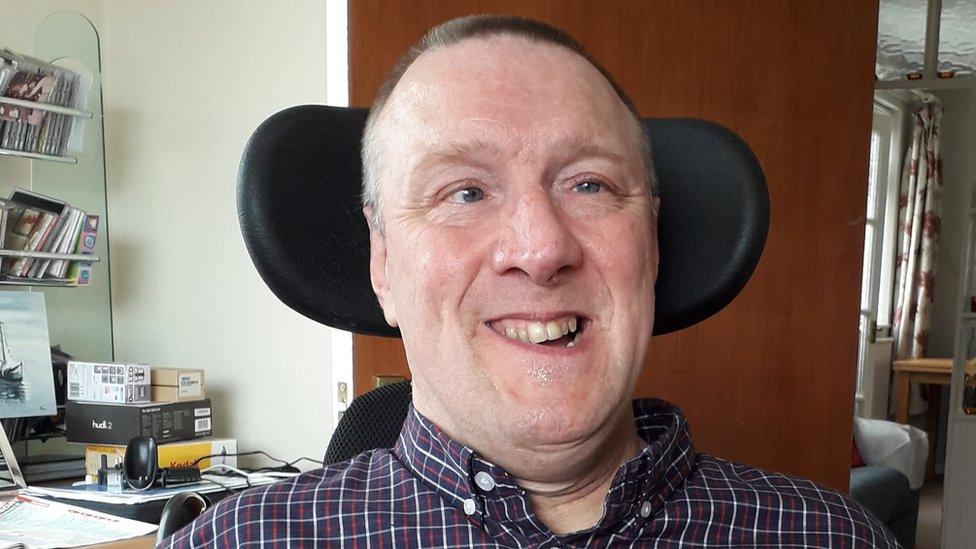'I miss his cheeky smile,' says bereaved carer
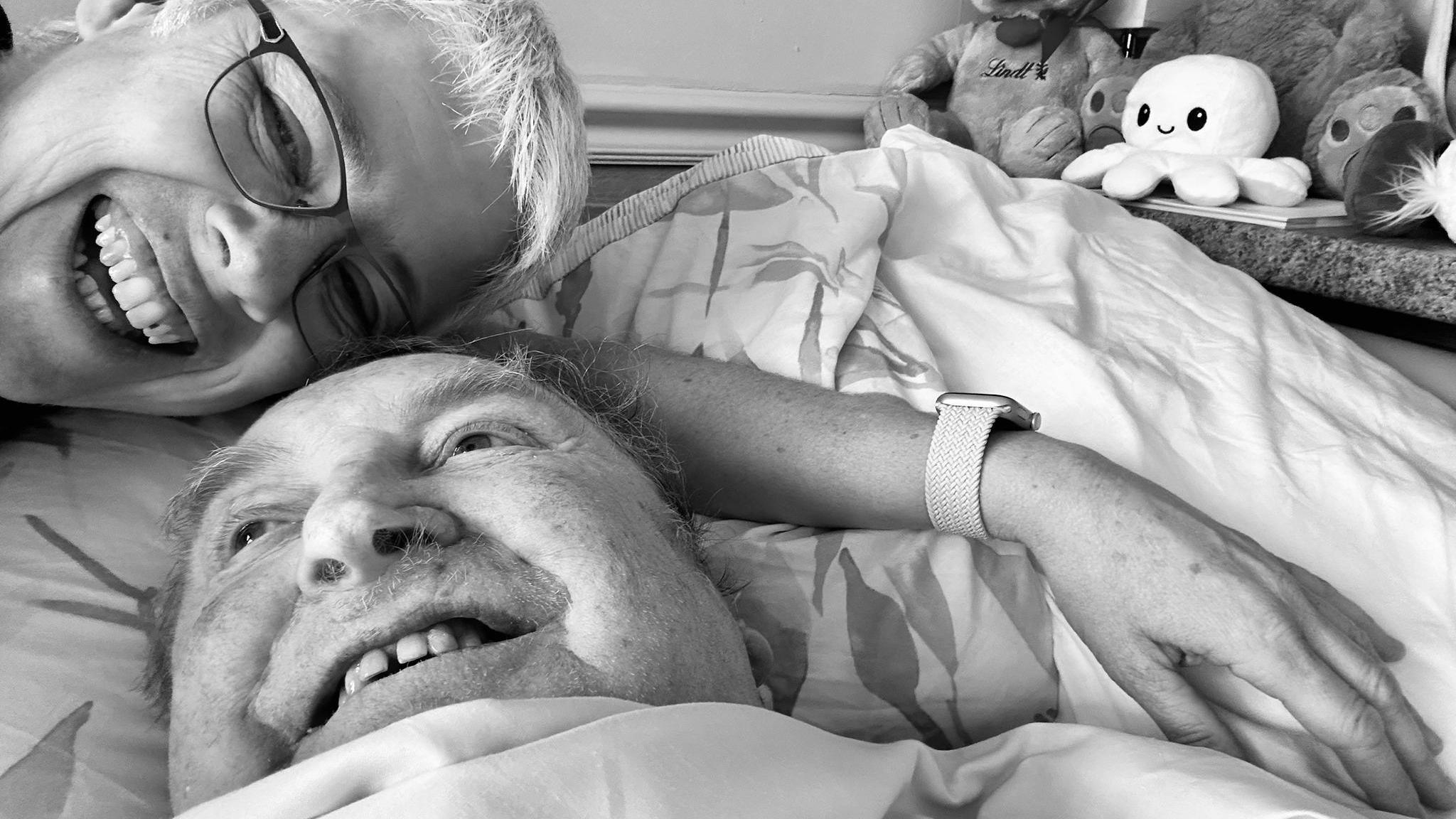
Amanda Threlfall was a full-time carer for her husband David for 12 years
- Published
You never stop being identified as a carer, a woman who looked after her late husband full-time for 12 years has said.
David Threlfall, from Thornbury near Bristol, had multiple conditions including sight loss, Lewy Body Dementia and had a stroke.
He died on 22 June 2023 and his wife Amanda said: "I miss so much his cheeky smile and his sense of humour, which he never lost. I want people to understand that caring never stops and you become badged a former carer.
"You don't get the same support as you would do when you were a carer, but it changes you forever as a person, some ways for the better, but there will always be a hole."
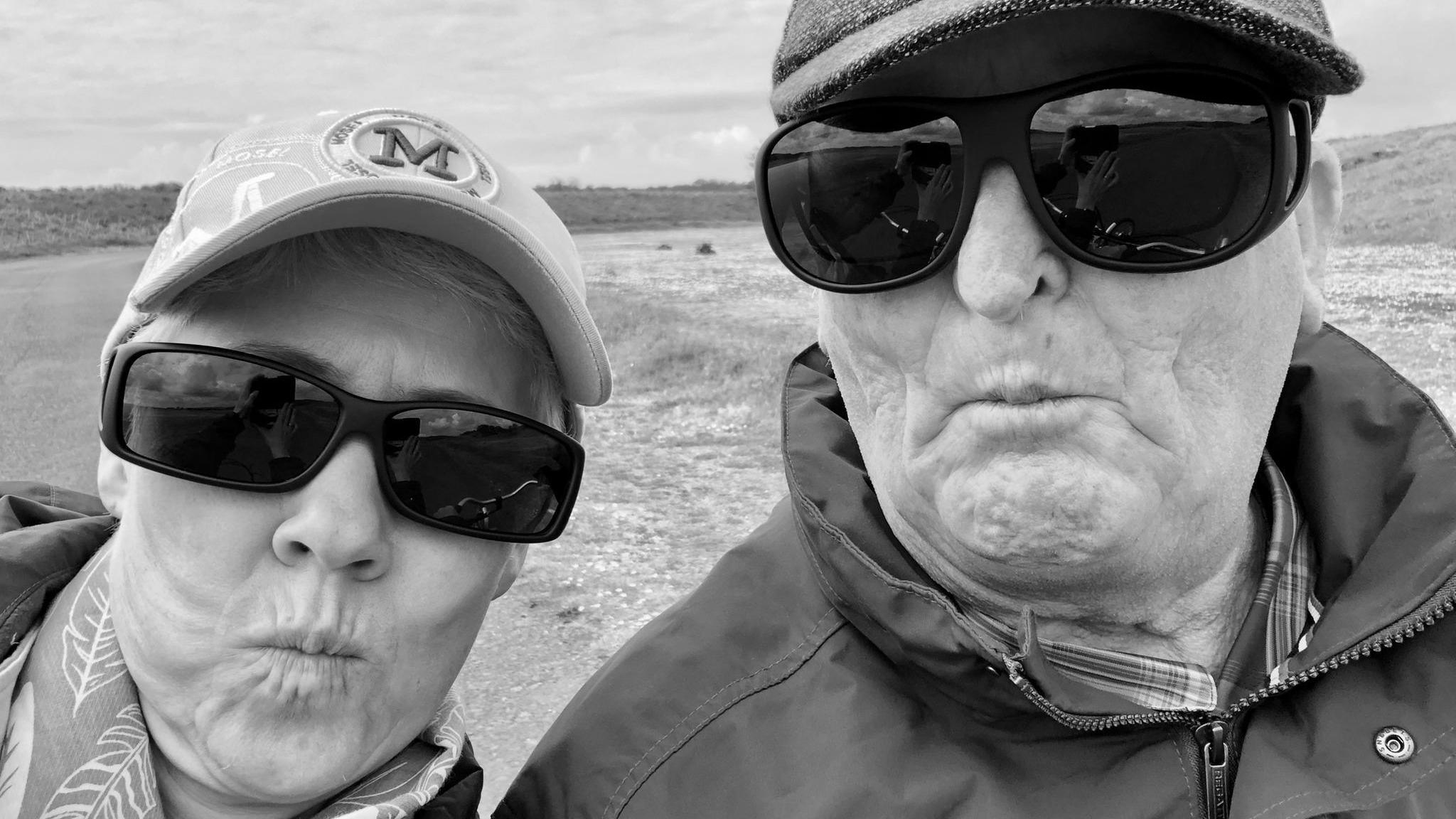
David Threlfall died in June 2023
Mr Threlfall struggled with vision loss initially, and then in 2020 he had a stroke in his sleep.
In 2021, he was diagnosed with Lewy Body Dementia, external - a condition that involves hallucinating and hearing or smelling things that are not there.
"The stroke stole his remaining peripheral vision and then the sight loss gave him hallucinations as well as day-to-day challenges," said Mrs Threlfall.
"But then the Lewy Body Dementia also brings hallucinations."
Mrs Threlfall said it took her some time to realise she had become a full-time carer for her husband.
While she was looking after him, she joined the Carers Support Centre in Fishponds, to meet other carers.
She said they helped her to apply for a Carer's Passport, external - a document that enables a carer and their manager to discuss flexibilities needed to combine caring and paid work.
"I was finding that if you were a parent you had support for childcare issues, as a carer [the only option was to] take annual leave," she said.
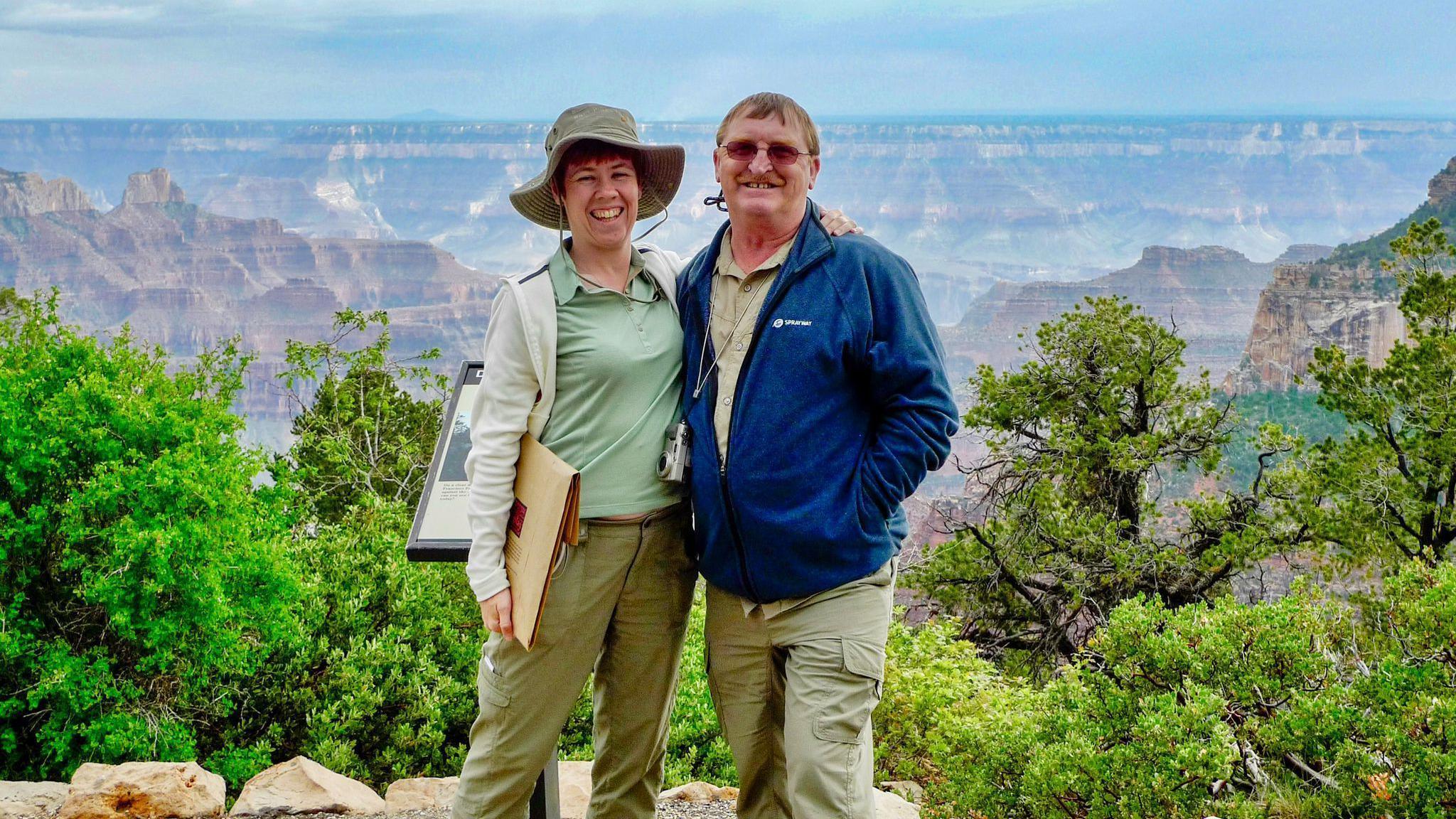
Mrs Threlfall said her husband's health deteriorated over time
It is estimated there are almost six billion unpaid carers in the UK.
Carer's UK and the University of Sheffield have worked out that unpaid carers save the government £162 billion each year, external.
The total spend for the last financial year on the NHS was £164 billion.
Most carers have to give up work and any form of income to look after a loved one.
Chief executive at Carer's UK, Helen Walker, said being a carer has a "significant impact on your mental and physical health".
"Many unpaid carers are exhausted, they struggle to access respite breaks and, with little time for themselves, they feel a loss of identity affecting their self-esteem, confidence, and wellbeing," she said.
“When a caring role comes to an end it can be hard to know what to do next."
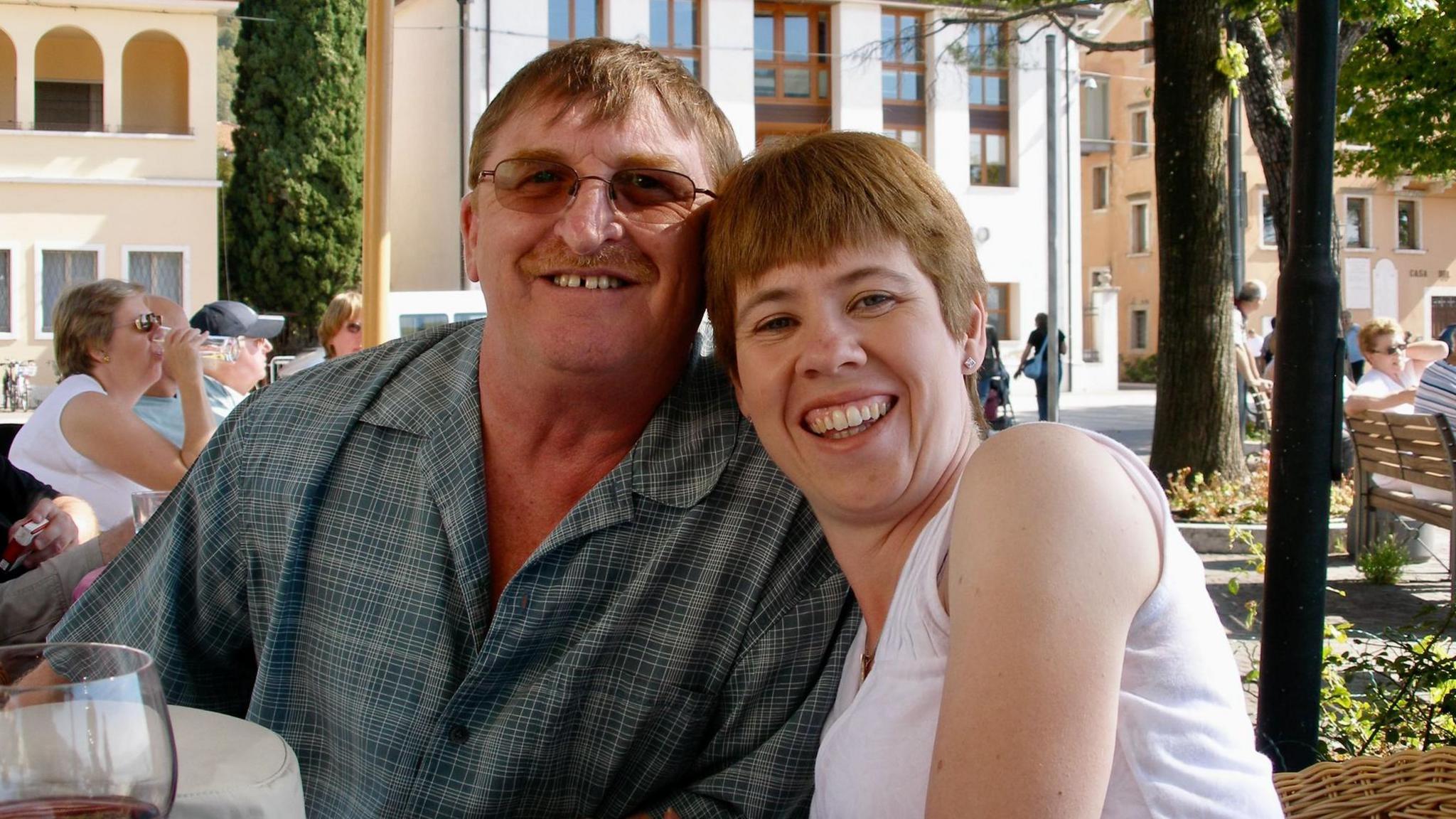
Mrs Threlfall said she loved taking care of her husband although his final years became increasingly difficult
Mrs Threlfall said she chose to look after her husband and loved taking care of him.
However, she said the last three years of his life were "very difficult" as his health deteriorated.
"On balance I was very lucky because David was grateful for everything he had and he was never a complainer," she said.
"We had a really close bond that was never lost throughout that journey.
"Not everyone has that bond with the person that they care for, and when you have to make those sacrifices, it can feel really, really hard."
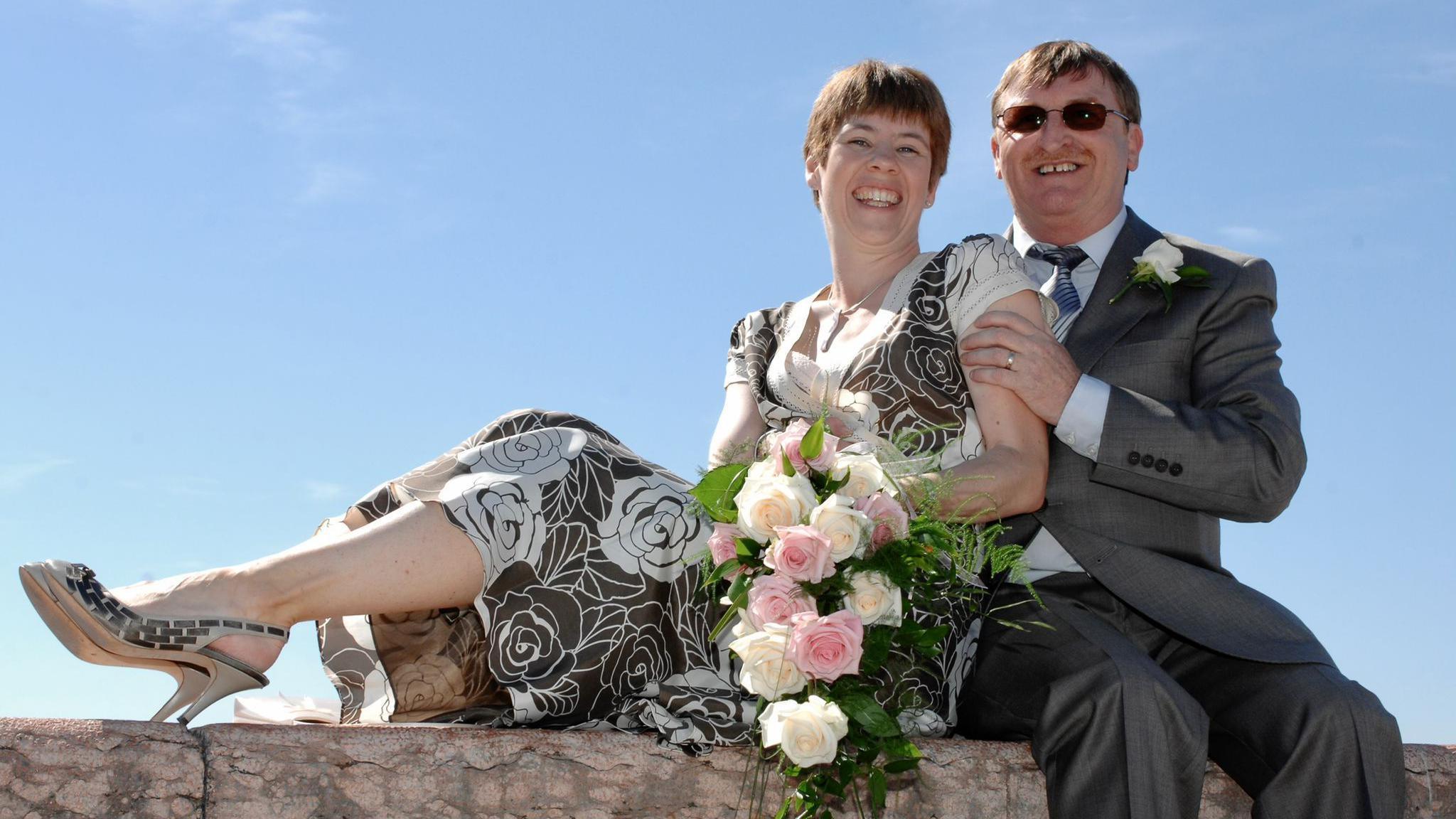
Mrs Threlfall said carers should be able to ask for help if they need it
On 13 June, the Carer's Support Centre hosted a series of presentations at the BAWA leisure centre in Bristol to offer more support.
Mrs Threlfall said her husband was an advocate for carers and would have wanted her to help others.
"I think the strongest thing you can do is ask for help," she said.
Follow BBC Bristol on Facebook, external, X, external and Instagram, external. Send your story ideas to us on email or via WhatsApp on 0800 313 4630.
- Published17 February 2024
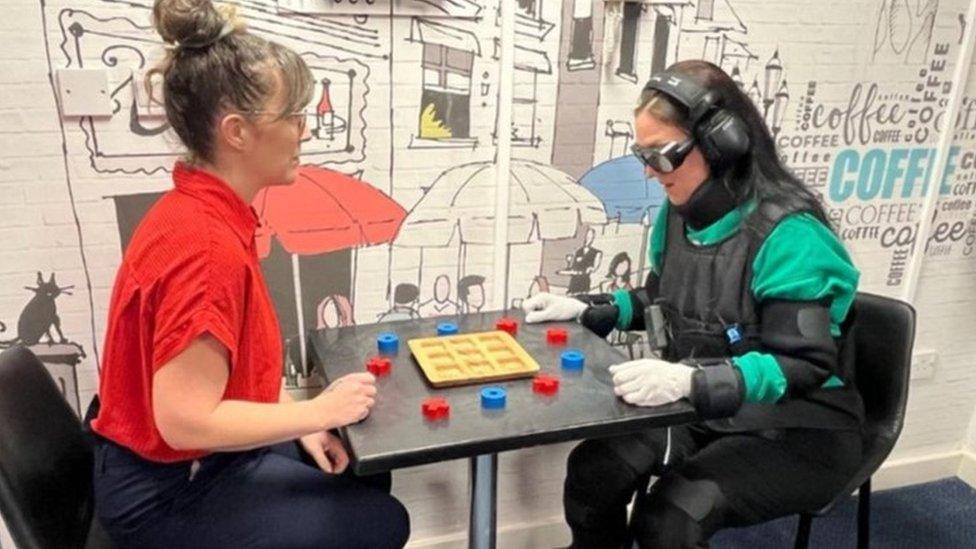
- Published22 September 2023
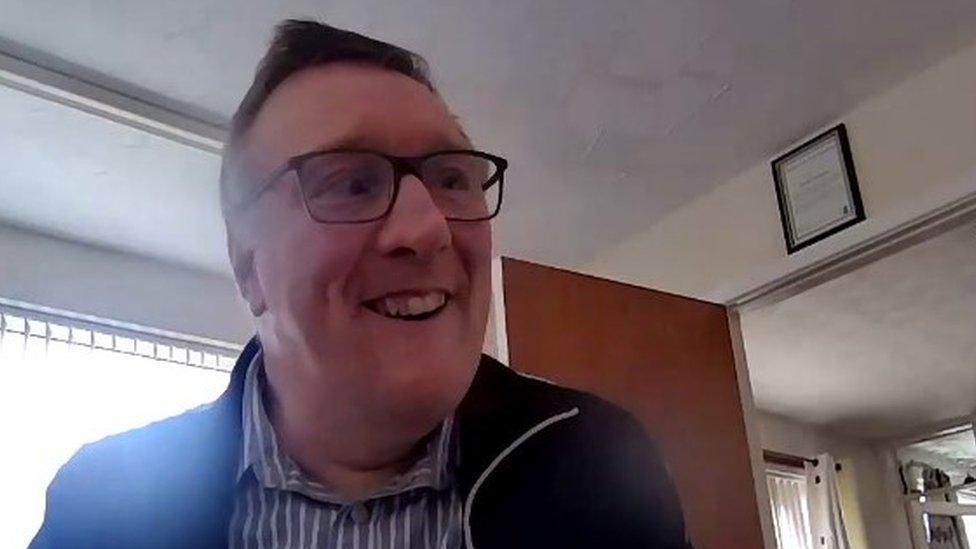
- Published20 January 2024
